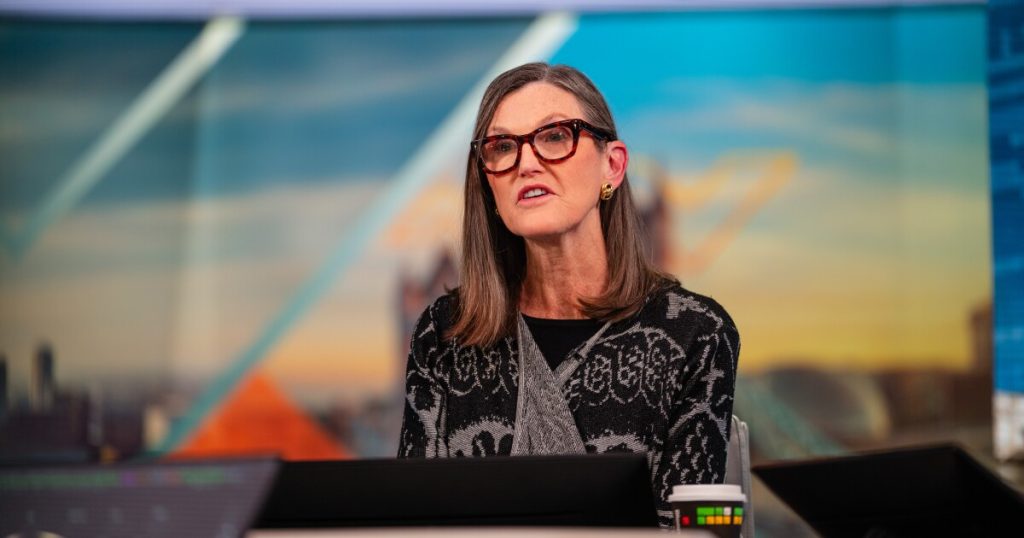Jose Sarmento Matos/Bloomberg
Cathie Wood said she is “not bothered” by the volatility in the price of bitcoin and would be more concerned if the price of bitcoin continued to go up unchecked.
“I actually think it’s extremely healthy,” Wood said of the current bitcoin price range. “We would not want the market to continue straight up to the right without looking back. We want a wall of worry, and I do think one of the things that we watch is on-chain analytics.”
Wood, founder and CEO of Ark Invest, made her comments Friday during a virtual panel hosted by Cboe. It comes at a time when Washington has
She was responding to a question about how the initial post-election excitement around bitcoin has died down as buyers
“Bitcoin’s in a four-year cycle and we’re through a little more than half of it,” Wood said, clarifying she would place the halfway mark of this bitcoin cycle as April 2024. “A lot of people are just trying to digest, ‘Okay, this has been a lot in a short period of time. Is there too much exuberance? Should I wait?’ I really like that kind of market. So, we’re not bothered by the to and fro here.”
President Donald Trump has vowed to be the first “crypto president” and made a promise in the campaign he’d make the U.S. the “crypto capital of the planet.” Only a month into his second stint in the Oval Office, Trump has put forward several crypto-friendly policies.
Trump
The president
One of the proposals being considered is the creation of a bitcoin strategic reserve, essentially a Ft. Knox of bitcoin. Wood said the creation of it by the Treasury is something she and her team at Ark agree with. Wood added it is “unbelievable” to her that there are some bitcoin maximalists who believe “that this should not happen, but we disagree.”
Wood noted the U.S. government’s past hesitation to embrace cryptocurrencies.
“The surprise here is that the U.S., given all of the regulatory morass we’ve been in, we’re the first one coming out flying in this regard,” Wood said.
She added that El Salvador was perhaps the starting point in the emerging markets but she expected to see the concept of a strategic reserve developed there before the U.S.
“We really thought this movement would start in the emerging markets, because they are – especially if they have a lot of dollar-denominated debt – so hostage to the dollar,” Wood said. “If the dollar starts appreciating, they’re in a heap of trouble. They need something like a Bitcoin reserve as well to bolster their reserves and protect against the depreciation of their currencies, and we think that’s going to happen as well.”
El Salvador became the first country in the world to adopt bitcoin as a legal tender and declared it a currency, despite pushback from the International Monetary Fund. That law was officially amended earlier this week following an agreement with the IMF in December that required the country to make acceptance of the cryptocurrency voluntary for businesses and mandate that taxes are paid in U.S. dollars. Bitcoin is no longer an official legal tender in the country.
Wood said she doesn’t immediately foresee bitcoin overtaking gold as the top reserve asset, but she does see the evolution happening, particularly among Gen Z and Millennials.
“I do see though more substitution, especially among younger people,” Wood said. “I don’t think they will buy gold; I think they will buy digital gold.”

